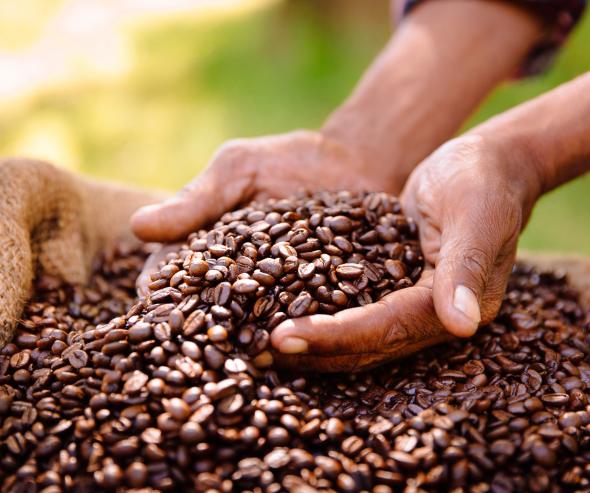27 March 2006: Fair trade

The Conseil de la Concurrence considers that fair trade does not necessarily contravene competition rules, but makes several recommendations in orders to organize product certification systems
Following a request by the Minister of Economy, for an opinion relative to the operating conditions of the fair trade business in France, and notably the compatibility with competition rules, of minimum pricing grids for purchases from producers, the Conseil de la Concurrence has published an opinion, in which it highlights the need for certification activities and the attribution of “fair trade” logos to be controlled, without unfairly reducing competition in this sector.
Fair trade
Fair trade is based on the payment to disadvantaged producers in developing countries of a price sufficient to improve living and production conditions for local populations, which is not possible with current world trading prices, notably for products such as coffee, cocoa, bananas and cotton.
At present, adherence to the minimum purchase pricing grids represents one of the main criteria for the attribution of the “fair trade” label by Max Havelaar, the main player in the attribution of logos in this sector, in France. Different mechanisms are, however, used by other players.
Fair trade market shares remain very slight, on the French market, although the sector is growing rapidly as a result of the emergence of these products in major retail outlets and the increasing number of participants. Sales of fair trade coffee (which represent 2/3 of all fair trade food sales) account for less than 5 % of total coffee sales. For other products, market shares are under 1 %.
The existence of minimum purchase pricing grids does not, in the current state of affairs, create any restrictions of competition which could be forbidden by French or European law
For the Conseil de la Concurrence, whilst the fair trade sector requires its adherents to respect, where appropriate, standardised purchasing conditions with producers in developing countries, the object and effects of these agreements, in the current state of development and organization of the fair trade sector, are mainly applied overseas and therefore fall outside the jurisdiction of European and French rules on competition.
The Conseil de la Concurrence also points out that further down the economic chain (at transformation and marketing stages), fair trade players remain free to act so as to preserve competition and leave the range of possible retail prices open, even though the raw material price is more or less the same for all operators.
In this respect, the Conseil de la Concurrence noted that the cost of raw materials purchased from producers only represented a fairly small proportion of the total cost of the finished product - 20 % of the retail purchase price of coffee, but under 10 % for bananas, tea or fruit juice.
The situation could change, if the market share of fair trade products were to develop significantly, or if the pricing methods after purchasing from producers were to change. If this were the case, the Conseil de la Concurrence would have to look at whether an exemption would be possible under French or European law. The Conseil de la Concurrence examined certain elements, which could be brought forward in the future.
Fair trade is a response to a deliberate approach by consumers to promote its values: reliable certification systems are therefore essential
The Conseil de la Concurrence has noted that fair trade products are generally 5 to 15 % more expensive than comparable, traditional products, but that this price difference is not affecting their progress. This shows that there is a demand for such values among consumers in industrialized countries.
However, consumers, who are unable to check the effective actions made by the various players who claim to partake in fair trade, must have access to reliable certification systems, which appear as a “service”, guaranteeing that the product was actually produced and purchased from the producer in conditions respecting certain social or environmental values.
At present, the emergence of new operators, retail distributors of fair trade products and certification systems promoted by different branches within the sector, as well as the existence of related concepts which consumers sometimes have trouble differentiating, do not guarantee sufficient transparency within the programme. The Conseil de la Concurrence qualifies as legitimate the action taken by public authorities to regulate the organization of the sector, initiated by the adoption of a legislative measure to define fair trade and which states that agencies engaging in the certification process in this area must be recognised by a commission (article 60 of the law dated 2 August 2005).
The Conseil de la Concurrence recommends public authorities to check that fair trade certification systems operate in a competitive way
The Conseil de la Concurrence pointed out, however, that these conditions, providing for the organization of this certification activity, are the ones at risk of restricting competition, with a more direct impact on French territory, than potential agreements affecting purchases from producers.
Such restrictions could not only affect fair trade agencies themselves, as “certifying” bodies, by reducing or eliminating competition between them, whereas at present they are independently offering different “certification products”, but also affect retailers, by reducing their ability to sell products bought through fair trade schemes, but which have been marketed using different procedures.
The Conseil de la Concurrence therefore stated that the commission provided for in article 60 of the law dated 2 August 2005 should operate within a context which would allow both the attribution of loyalty guarantees for operators claiming to follow fair trade programmes, and the preservation of sufficient competition within the sector. In this respect, the Conseil expressed reservations, regarding a situation which could lead to one predominant reference emerging.
